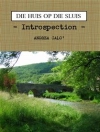While scouting sites for geology field trips, poet and naturalist John Lane encountered deep gullies created between the Civil War and the 1930s contributed to by his mother’s tenant farming family and their rural neighbors in Piedmont South Carolina. This brush with the poor farming practices of the past leads Lane into an exploration of his own family’s complicated history and of the larger environmental forces that have shaped the region where he chooses to live. With his sister as guide, Lane descends into the gully of his own childhood to uncover memories of a loving but alcoholic mother and a suicidal father.
Back and forth, the narrative progresses from depictions of the land—particularly the overgrown and neglected places that hold stories and mysteries of the region—to Lane’s ever-deepening search.He wonders how he, a college professor and husband settled into middle-class life, has emerged from the chaos of his family’s past. Along the way, we meet heroic Depression-era geologists, fascinating colleagues, and troubled ancestors. Lane’s extraordinary ability to weave personal history together with explorations of the natural world will remind readers of the works of Loren Eiseley and Terry Tempest Williams.
Об авторе
JOHN LANE is professor emeritus of environmental studies at Wofford College. A 2014 inductee into the South Carolina Academy of Authors, his books include Circling Home, My Paddle to the Sea, and Coyote Settles the South (all Georgia). He is also coeditor of The Woods Stretched for Miles: New Nature Writing from the South (also Georgia), and he has published numerous volumes of poetry, essays, and novels. Coming into Animal Presence is his most recent work. He lives in Spartanburg, South Carolina.












